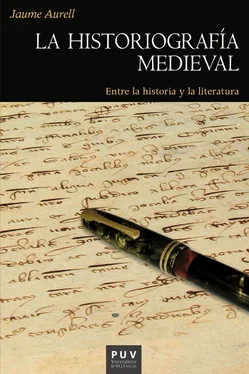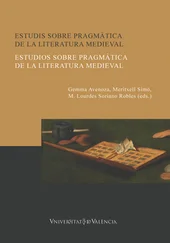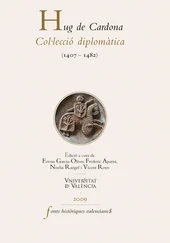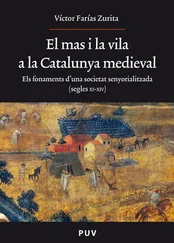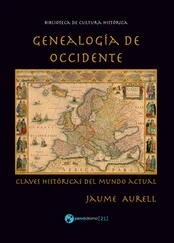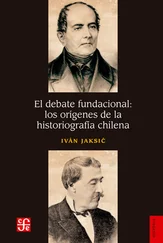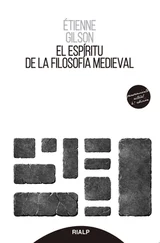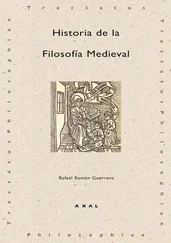5 Los Annales son el género histórico donde se recogen sistemática y esquemáticamente los principales acontecimientos: Michael McCromick: Les Annales du aut moyen âge , Turnhout, Brepols, 1975. En Cataluña reciben el nombre de cronicons : Miquel Coll i Alentorn: Historiografía , Barcelona, Curial, 1991, pp. 24-42; Thomas N. Bisson: «Unheroed Pasts: History and Commemoration in south Frankland before the Albigensian Crusades», Speculum 65, 1990, pp. 287-289. Una introducción general al género genealógico en Leopold Genicot: Les Généalogies , Turnhout, Brepols, 1975.
6 Northrop Frye: The Anatomy of Criticism , Princeton, Princeton University Press, 1957, p. 15.
7 Martí de Riquer: Història de la literatura catalana , Barcelona, Ariel I, 1964, p. 373.
8 Para la distinción entre los diferentes géneros históricos en la Edad Media, Bernard Guenée: «Histoires, annales, chroniques. Essai sur les genres historiques au moyen âge», Annales. Économies, Sociétés, Civilisations 28, 1973, pp. 997-1016. La cuestión de los géneros históricos me parece esencial e intuyo que va a ser uno de los temas que generará mayor atención entre los académicos en el futuro, pues es un tema que se aviene bien al mayor diálogo disciplinar experimentado entre la disciplina histórica y la crítica literaria en los últimos decenios. He reflexionado sobre esta cuestión en Jaume Aurell: «The Shift in Historical Genres», Authoring the Past. History, Historiography, and Politics in Medieval Catalonia , Chicago, The University of Chicago Press, 2012. Sin pretender ser exhaustivo, cito a continuación algunos de los estudios teóricos más relevantes de los últimos años sobre la teoría de los géneros, en concreto los que me parecen más aplicables al análisis de la historiografía medieval: Hans-Robert Jauss: «Littérature médiévale et théorie des genres», Poetique 1, 1970, pp. 79-101; Jacques Derrida: «The Law of Genre», Critical Inquiry 7, 1980, pp. 55-82; Heather Dubrow: Genre , Londres, Methuen, 1982; Alistar Fowler: Kinds of Literature. An Introduction to the Theory of Genres and Modes , Oxford, Oxford University Press, 1982; Jean-Marie Schaeffer: «Du texte au genre. Notes sur la problématique générique», Poetique 53, 1983, pp. 3-18; Carolyn R. Miller: «Genre as Social Action», Quarterly Journal of Speech 70, 1984, pp. 151-167; Gérard Genette y Tzvetan Todoroz (eds.): Théorie des genres , París, Seuil, 1986; Ralf Cohen: «History and Genre», New Literary History 17, 1986, pp. 203-218; David Baguley: «Genre and “Genericity”: Recent Advances in French Genre Theory», en Joe Andrew (ed.), Poetics of the Text. Essays to celebrate Twenty Years of the Neo-Formalist Circle , Amsterdam, Rodopi, 1992; Mark Salber Phillips: «Histories, Micro- and Literary: Problems of Genre and Distance», New Literary History 34, 2003, pp. 211-229.
9 Bernard Guenée: «Les généalogies entre l’histoire et la politique: la fierté d’être Capétien en France au Moyen Âge», Annales. Économies, Sociétés, Civilisations 33, 1978, pp. 450-477; Gabrielle M. Spiegel: «Genealogy: Form and Function in Medieval Historical Narrative», History and Theory 22, 1975, pp. 314-325.
10 Mateo, cap. 1, vers. 1-17.
11 José Enrique Ruiz Domènec: «Reminiscencia y conmemoración: el proceder de la literatura genealógica», La memoria de los feudales , Barcelona, Argot, 1984, p. 219.
12 Jacques Le Goff: «Au Moyen Âge: Temps de l’Église et temps du marchand», Pour un autre Moyen Âge. Temps, travail et culture en Occident , París, Gallimard, 1977, pp. 46-65 y Jacques Le Goff: «Le temps du travail dans la crise du XIV esiècle: du temps médiéval au temps moderne», Le Moyen Age LXIX, 1963, pp. 597-613.
13 Algunos de estos ejemplos están desarrollados en Duby: «Remarques sur la litterature généalogique», pp. 287-298.
14 Thomas N. Bisson: «L’essor de la Catalogne: identité, pouvoir et idéologie dans une société du XII esiècle», Annales. Économies. Sociétés. Civilisations 39, 1984, pp. 454-479, especialmente en pp. 459-463. Bisson conecta este modo genealógico de narrar con aquel otro que describió Georges Duby para el norte de las viejas tierras carolingias, donde existe una producción fecunda de genealogías de linajes ilustres: Duby: «Remarques sur la littérature généalogique», cap. 16. También es útil, como modelo, Leopold Genicot: «Princes territoriaux et sang carolingien. La Genealogia comitum buloniensium », Études sur les principautés lotharingiennes , Louvain, Université de Louvain, 1975, pp. 217-306.
15 Miquel Coll i Alentorn: «La historiografía de Catalunya en el període primitiu», Estudis Romànics III, 1951-1952, pp. 139-196.
16 Utilizo la expresión acuñada por Hayden V. White: The Content of the Form: Narrative Discourse and Historical Representation , Baltimore, The Johns Hopkins University Press, 1989, cuyas reflexiones sobre la moderna historiografía, y sobre todo su teoría sobre el texto histórico como artefacto literario, resultan muy útiles para enfrentarse al análisis de las historiografías de las diferentes épocas históricas.
17 Gabrielle M. Spiegel: The Past as Text. The Theory and Practice of Medieval Historiography , Baltimore, The Johns Hopkins University Press, 1997, p. 106.
18 Les Grandes Chroniques de France , Jean Viard (ed.), París, Société de l’Histoire de France, 1920-1953, 10 vols. (aquí vol. 5, cap. 1-2).
19 Ver las interesantes reflexiones que sobre este punto se encuentran en el ensayo de François Dosse: Història. Entre la ciència i el relat , València, Universitat de València, 2001. En los últimos años se han publicado sugerentes obras teóricas sobre las relaciones entre historia y la memoria en las sociedades tradicionales y el uso del tiempo y la tradición: David Lowenthal: The Past is a Foreign Country , Cambridge, Cambridge University Press, 1985; Gordon S. Wood: The Purpose of the Past. Reflections on the Uses of History , Nueva York, The Penguin Press, 2008; y John L. Gaddis: The Landscape of History: how Historians Map the Past , Oxford, Oxford University Press, 2004. Para la España medieval, ver el interesante volumen colectivo de Jon Andoni Fernández de Larrea y José Ramón Díaz de Durana (eds.): Memoria e historia. Utilización política en la Corona de Castilla al final de la Edad Media , Madrid, Sílex, 2010.
20 Lo que explicaría su utilización en otros lugares muy distantes: para la India Antigua, ver Romila Thapar: «Society and Historical Consciousness. The Itihasa- purana, Tradition», Interpreting Early India , Oxford, Oxford University Press, 1992, pp. 137-173. Romila Thapar: «Genealogy as a Source of Social History», Ancient Indian Social History. Some Interpretations , Delhi, Orient Longman, 1978, pp. 326-360; Romilla Thapar: «Genealogical Patterns as Perceptions of the Past», Cultural Pasts. Essais in Early Indian History , Oxford, Oxford University Press, 2000, pp. 709-753. Para Hawai, ver Valerio Valeri: «Constitutive History: Genealogy and Narrative in the Legitimation of Hawaiian Kingship», Emiko Ohnuki-Tierney (ed.), Culture Through Time. Anthropological Approaches , Stanford, Stanford University Press, 1990, pp. 154-192; Davida Malo: Hawaiian Antiquities , Honolulu, Bishop Museum Press, 1971; Samuel M. Kamakau: The Ruling Chiefs of Hawaii , Honolulu, Kamehameha Schools Press, 1961. Para las sociedades indígenas norteamericanas, Karen I. Blu: The Lumbee Problem. The Making of an American Indian People , Lincoln, University of Nebraska Press, 2001.
Читать дальше
